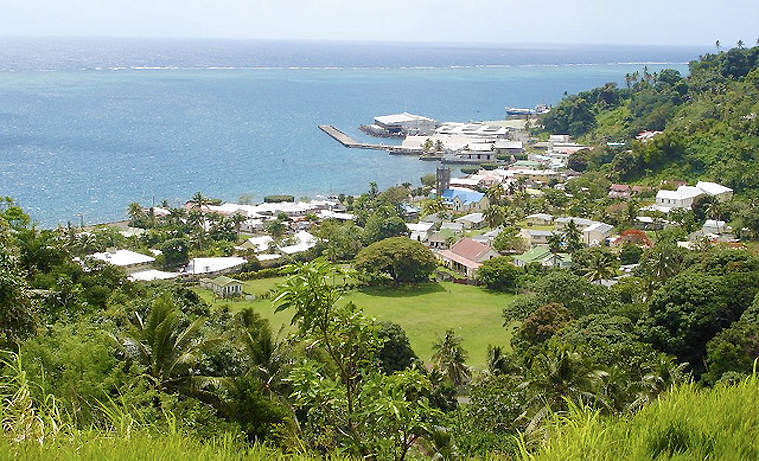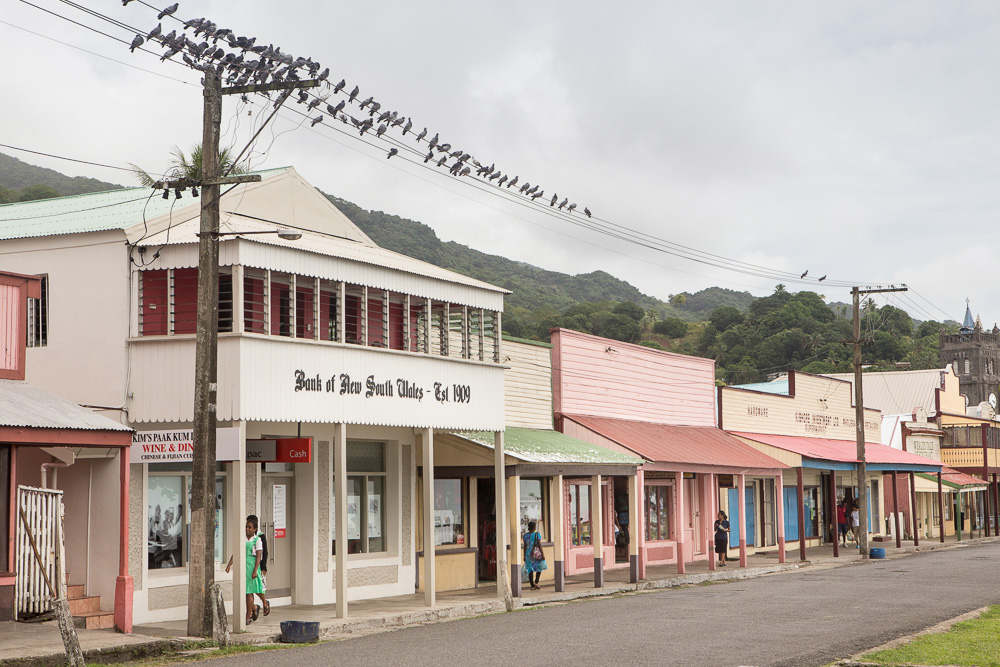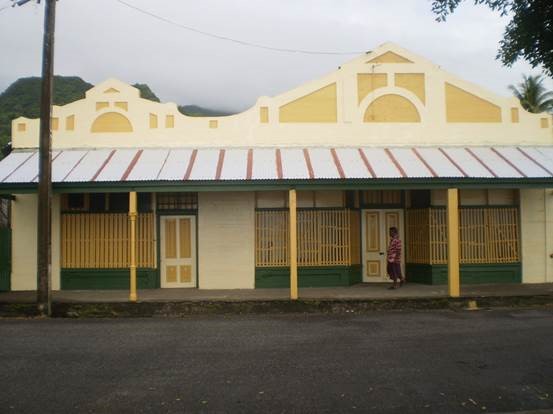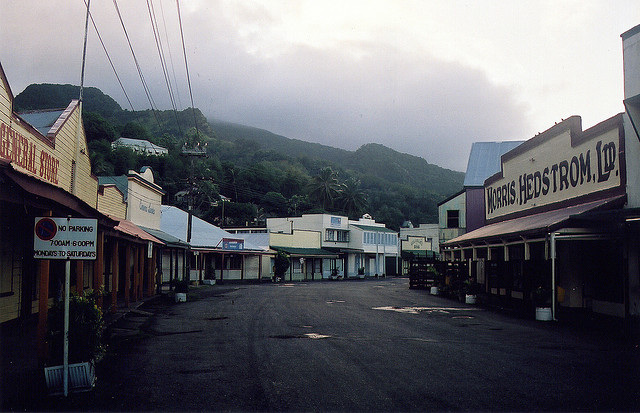The historic port town of Levuka
Unesco's Scientific, Educational and Cultural Organization has recognized the historic port town of Levuka of Fiji as a 2013 World Cultural Heritage.

The historic port town of Levuka
Levuka is a town on the east coast of Fiji's Ovalau Island, formerly the historic town of Fiji. According to the 2007 census, in the town of Levuka alone, the population accounted for half of the population on the entire Ovalau island . It is also the economic center and is the largest of the 24 cities on the island. The town is a rare example of a colonial harbor town that has so far grown and is home to quite a large number of Europeans - citizens who came to the island during the 19th century.
It was these European settlers who founded the town of Levuka in 1820. They brought this coastal port town into a busy and important trading center in the region.
In 1858, Father Marist founded the first church in Levuka. In 1871, King Seru Epenisa Cakobau took the throne and founded the state of Fiji. In 1874, Fiji was annexed to become a British colony, but Levuka remained the capital until 1877 when the government apparatus moved to Suva. The reason for this change is that the management apparatus thinks that the stone bars up to 600 meters high around the town are bound to make it impossible to expand the capital.

Beautiful coast of historic town Levuka


Levuka today
The historic port town of Levuka is famous for possessing many of Fiji's "first" things: Fiji's first bank was formed here; Post office; Schools; Private hospital; Town Hall . Fiji's first newspaper, Fiji Times, also had its first headquarters in Levuka, so far this newspaper office is still active.Royal Levika Hotel is the oldest hotel in the South Pacific which has been operating continuously since its establishment. The exact founding year of this hotel has not been accurately determined, but according to the document it has existed since the 1860s. Levuka public school first opened in 1879, the first public school in Fiji and many Fijian leaders in the early years led to and after 1970 independence were trained here .
The town has been busy and an important port for ships passing through Thai Binh Duong to stop until 1950. The loss of sea use has seriously threatened the main economy of the whole market. town
In 1964, a Japanese company came here to establish a Pacific fish company . The company specializes in canning and transporting canned tuna to markets in Europe and Canada. A joint-venture canning factory between the government and PAFCO was opened in the town in 1976, this is the largest private company on the island. Due to being isolated, tourism in Levuka only played a small role and did not contribute significantly to the island's economy.
Public buildings in Levuka still intact so far: Fiji Museum; Public Library; Kindergarten; Pitch; Hall; A store was built in 1878; A trading company established from the early days of establishing a town; An old building was built in 1980 . Besides, there are some other famous places such as: the Sacred Heart Church built in 1858; Levuka City Hall was built in 1898 in honor of Queen Victoria. The building was built by architect Diamond Jubilee.




Several typical ancient buildings of the historic town of Levuka
The historic port town of Levuka is recognized by Unesco as a World Cultural Heritage under the criteria (ii), (iv)
Criterion (ii): The historic port town of Levuka is a typical example of maritime development in the 19th century in areas around the Pacific Islands. The town is also a colonial city with a large number of immigrants who have settled in with the natives to form a new community.
Criterion (iv): The historic port town of Levuka clearly reflects the development of European colonial organizations in the 19th century. Europeans migrated to the island and combined with the village people. Geography constitutes a separate cultural society at the Pacific coast
- The historic town of the port city of Valparaiso
- Historical town Vigan
- Cold crow on the island 'ghost' in East Africa
- Strange towns in the world
- 9 beautiful Chinese towns
- Historic center of Salzburg
- Singapore built the second liquefied gas port
- The world's fourth-largest sea disappeared completely, inertly dry
- The most mysterious ghost towns on earth
- Hoi An
- Egypt discovered the port
- Graz City and the Scholoss Eggenberg historic center
 Suzhou classic bonsai garden - China
Suzhou classic bonsai garden - China Chau Nguyen Dynasty
Chau Nguyen Dynasty Thai Son Mountain - World Wonder
Thai Son Mountain - World Wonder Ancient villages of Shirakawa-go and Gokayama
Ancient villages of Shirakawa-go and Gokayama